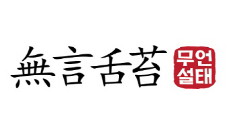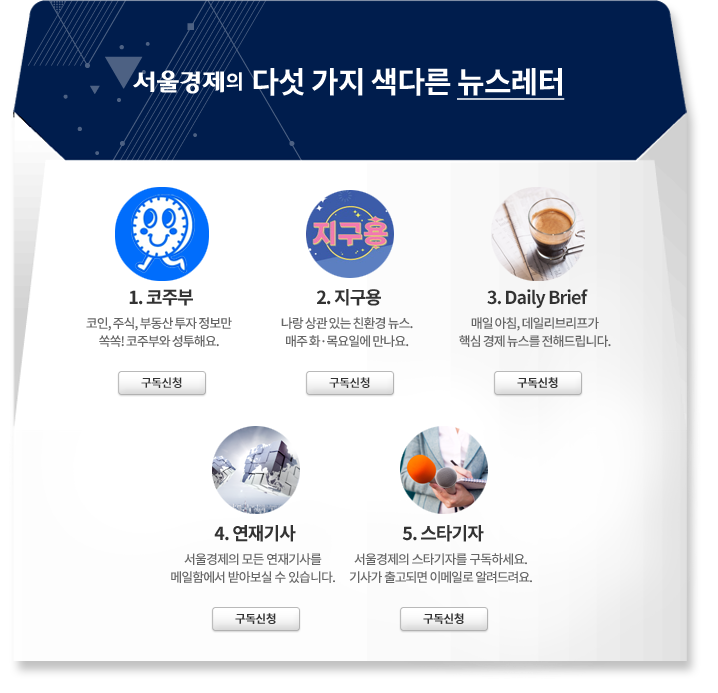< 저작권자 ⓒ 서울경제, 무단 전재 및 재배포 금지 >
[송현칼럼] 한·중 FTA는 '기회'
입력2007-04-15 16:30:46
수정
2007.04.15 16:30:46
[송현칼럼] 한·중 FTA는 '기회'
데이비드 전 美 아틀라스캐피털 회장
한국은 최근 미국과 자유무역협정(FTA) 체결에 합의했다. 이에 대한 지지를 얻는 것은 정치적으로 쉽지 않았지만 한국은 이를 성사시켰다. 이 같은 결정은 국제 사회로부터 환영을 받았다. 한국에 미국과의 FTA 체결은 매우 긍정적이고 상징적인 사건이다. 일반적으로 FTA는 기존의 무역 협력관계를 강화하고 국가간 통합의 길로 들어서게 한다. 이는 북미자유무역협정(NAFTA)과 유럽연합(EU)의 사례에서 알 수 있다. 최근 한미 FTA도 이런 목표를 달성했다.
한미 FTA 협상 타결 이후 한국의 다른 교역국들도 한국과 FTA 협상을 벌이기를 원하고 있다. 이는 한국에 긍정적인 발전을 의미한다.
특히 중국이 한국과의 FTA 체결에 관심을 보이고 있다는 소식은 한국의 발전 정도를 가장 잘 보여준다. 한중 FTA는 한국의 경제와 금융 미래에 있어 중요한 과제다.
우선 이는 세심한 분석과 전략 발전을 의미한다. 비록 많은 이들이 한중 FTA를 단순히 한국의 제조업 기지인 국가와의 협정이라고 생각할 것이다. 그러나 한국은 중국과의 FTA 체결로 엄청난 기회를 잡을 수 있다. 만약 한국이 FTA 체결을 통해 중국의 제조업 수입 제한을 완화하고 금융 부문에 대한 접근성을 높일 수 있다면 한국은 국제적인 경쟁력을 얻는 셈이다. 한국보다 30배나 많은 인구를 가진 나라에 투자하고 이익을 취할 수 있다는 것은 한국 경제에 기회다. 중국에 투자하는 것으로 얻을 수 있는 잠재적인 수익만으로도 충분히 그 기회는 훌륭한 것이다.
대부분의 FTA 협상은 제조업과 농업 분야의 협상으로 이뤄진다. 또 제조업과 농업 생산물의 이동을 제한하는 규제들도 협상 대상이다. 그러나 한국은 중국과의 FTA로 어떤 산업에 피해가 있을지보다 중국 시장에서 어떤 투자 이익을 얻을 수 있을지에 초점을 맞춰야 한다. 만약 한국의 금융 투자자들과 기업들이 중국 금융업체를 인수하는 등 투자를 확대할 수 있다면 한중FTA는 성공이라고 할 수 있다.
한국 증권사나 자산운용사ㆍ은행 등이 국내 사업을 중국에서 할 수 있다고 상상해보라. 이는 한국의 새로운 성장 기회다. 만약 앞으로 20년 동안 경쟁력을 잃어가는 업종을 보호하는 것과 중국에 대한 투자 접근성을 높이고 기업들이 중국에서 사업을 할 수 있도록 하는 것에 대해 득실을 따져본다면 비교가 불가능할 정도다. 또 한국은 중국 진출로 글로벌 금융허브로 자리매김할 수 있을 것이다. 한중 FTA의 시너지 효과는 한국에 다방면의 이익을 가져다줄 것으로 보인다. 한국은 이런 기회를 무시하기 어렵다.
FTA 협상에서는 대부분 해당 국가가 어떤 것을 얻고 잃을지가 중요하다. 이를 위해서는 득과 실이 수량적으로 평가돼야 한다. 많은 경우 FTA로 인해 발생하는 보유 달러의 총액 변화가 득실을 따지는 데 사용된다. 이는 대부분의 FTA 협상에서 사용되는 기준이다. 그런데 FTA와 관련해 많은 국가들은 경제적인 협정에 대해 정치적인 면에서 이익과 피해를 계산하고 있다. 정치적인 부차적 피해에 대한 관리가 가능하다면 많은 국가들이 FTA 체결에 나설 것이다. 정치적으로 고민할 사안이 없다면 전세계 국가들이 모두 FTA 체결국이 됐을지도 모른다. 만약 FTA로 실질적인 이득을 얻을 수 있다면 많은 국가들이 그것을 협상의 중요한 주제로 강조하기도 어려울 것이다. 이런 상황에서 한국이 협상에서 실질적인 이익을 취하려면 협상 대상국의 양적인 요구를 포기시켜야만 한다. 금융시장 접근성이 즉시 이득을 안겨줄 수 있을지는 불확실하다. 그러나 한국 금융 기업들에 이것은 매우 중요한 선택이다. 그들은 언제나 경쟁력을 강화하고 특혜와도 같은 시장 접근성을 높이는 방법을 고민하기 때문이다. 시간이 흐르면 세계 최대 경제대국으로 성장할 중국에서 금융 시장 접근성을 높이는 것은 이익을 얻는 가장 효과적인 방법이 될 수 있다.
중국과의 FTA 체결이 단지 상품무역에만 초점이 맞춰져 있다면 FTA는 이미 진행 중인 상품시장 개방 시기를 조절하는 장치에 불과하다. 한국이 과거 30년 동안 경제성장을 일구면서 다양한 산업군에서 일본을 제쳤듯이 중국도 앞으로 여러 업종에서 한국을 뛰어넘을 것이다. 중국의 경제개발에 어마어마한 투자가 몰리는 것을 감안하면 이런 상황이 벌어지기까지 30년이나 걸리지도 않을 것이다.
한중 FTA가 한국의 사양산업 보호와 중국의 성장산업 발전에만 초점을 맞춘다면 어떠한 이익도 창출될 수 없다. 그러나 FTA를 통해 한국이 중국산 물품을 더 많이 들여오는 대신 중국 금융시장 접근성을 높일 수 있다면 이는 분명 양국에 ‘윈윈 게임’이 될 것이다. 한미FTA의 가장 큰 성과는 한국과 중국이 양국간 FTA에 관심이 쏠리도록 한 것이다. 중국의 경제발전에서 이익을 얻을 수 있다는 것은 엄청난 기회다. 한국은 이 기회를 놓치지 말고 반드시 한중 FTA를 성사시켜야 한다.
The Importance of the Next FTA for Korea
Korea recently signed an FTA with the US. It was not an easy political task to develop a support for this initiative, but Korea got it done. This decision was well received by the global community. This was a very positive and significant symbolic event for Korea in the global community. In general, free trade agreements usually attempts to validate already existing trade partnership and tries to lock in the path of integration among nations. This was the case for the North American Free Trade Agreement (NAFTA) and European Union (EU). Idea is more on preserving the existing economic integration trend. The recent Korea-USA FTA accomplished this goal.
More interestingly, right after the FTA with the US, other trading partners of Korea want to open a dialogue on FTA with Korea. This is a good development for Korea. The most interesting development is that China is indicating its interest to firm up an FTA with Korea. This is the most exciting news and development. This has significances for Korea’s economic and financial future. It deserves a careful analysis and strategy development. Although many might see an FTA with China simply as a treat to Korea’s manufacturing base, this event can create a huge opportunity for Korea. If Korea gains financial sector access to China for a less restriction on imports of manufactured goods from China, Korea can create a globally competitive advantage factor through the FTA process. It is an opportunity for Korean money and businesses to invest and benefit from a country with population that is about 30 times greater than Korea.
The imbedded leverage on the return for the Korean money that is to be invested in China is simply great.
Most FTAs deal with manufacturing and agriculture sectors and regulations governing the movements of manufactured goods and agriculture goods. Instead of focusing on “what industries will Korea lose,” Korea should focus on “what preferential treatment” the Korean money will have on the Chinese economy and markets. If Korea manages to receive a preferential regulatory treatment for Korean financial investors and financial companies to buy and develop financial instruments and businesses in China, the FTA with China will be a great success.
Just imagine an opportunity that allows Korean brokerage firms, asset management companies, banks and other financial firms to own and operate similar businesses in China. This will present Korea with a new growth opportunity that does not exist today. If one does a 20 year projection on the marginal cost/benefit analysis on fighting to protect diminishing competitive industries versus fighting to gain fuller access for Korean money and companies to operate in China, there is no comparison. Also, if done right, Korea can become a hub through which global money can enter China. The potential synergy benefit to Korea is very comprehensive. This is an opportunity that Korea cannot ignore.
In most FTA negotiations, value is assigned to what countries lose and gain. To do this analysis, the cost/benefit has to be quantifiable. In most cases, the dollar amount is assigned to the gains and loses from the agreement. This is how most of the FTA negotiations take place. Then each country weighs benefit and damage from the political front on such economic agreements. If the political collateral damage is manageable, then the countries ratify the FTAs. If no internal political consideration is given, the entire world would sign a full-access FTA today. The reality of each country’s political economy dictates the extent of the agreement and the timing of such agreements. If the gains from an agreement are qualitative in nature, it is difficult for countries to stress it as a main point of a negotiation. In this context, the idea here is for Korea to negotiate to gain qualitative goals by giving up quantitative demands of the negotiating counter party. It is not clear that the benefit of the financial market access can bear fruit immediately. However, this option should become very valuable over time as the Korean financial firms figure out a way to use its competitive advantage and unlock the value of the preferential access. This might become the most leveraged ways to benefit from the developments in China as it becomes world’s largest economy over time.
If the FTA with China only focuses on the trade of goods, then the FTA itself only becomes a regulator of timing of trends that are already in place. Just like Korea took over many industries from Japan as Korea developed over the past 30 years, China will take over many industries from Korea. This should not take 30 years as capital available to fund China’s development appears to be very abundant. An FTA with China that focuses on which industries Korea wants to protect (i.e., delay the demise) and China wants to promote does not necessarily create any value. However, if Korea gains by getting a better financial market access into China and China gains by being allowed to export more to Korea, it could be a win-win situation for all. Forcing China and Korea to focus on their FTA might be the most important consequences of the Korea-US FTA. There is a huge opportunity to gain leveraged access to China’s economic development. This opportunity should be treated with importance and should not be missed by Korea.
입력시간 : 2007/04/15 16:30

주소 : 서울특별시 종로구 율곡로 6 트윈트리타워 B동 14~16층 대표전화 : 02) 724-8600
상호 : 서울경제신문사업자번호 : 208-81-10310대표자 : 손동영등록번호 : 서울 가 00224등록일자 : 1988.05.13
인터넷신문 등록번호 : 서울 아04065 등록일자 : 2016.04.26발행일자 : 2016.04.01발행 ·편집인 : 손동영청소년보호책임자 : 신한수
서울경제의 모든 콘텐트는 저작권법의 보호를 받는 바, 무단 전재·복사·배포 등은 법적 제재를 받을 수 있습니다.
Copyright ⓒ Sedaily, All right reserved














































